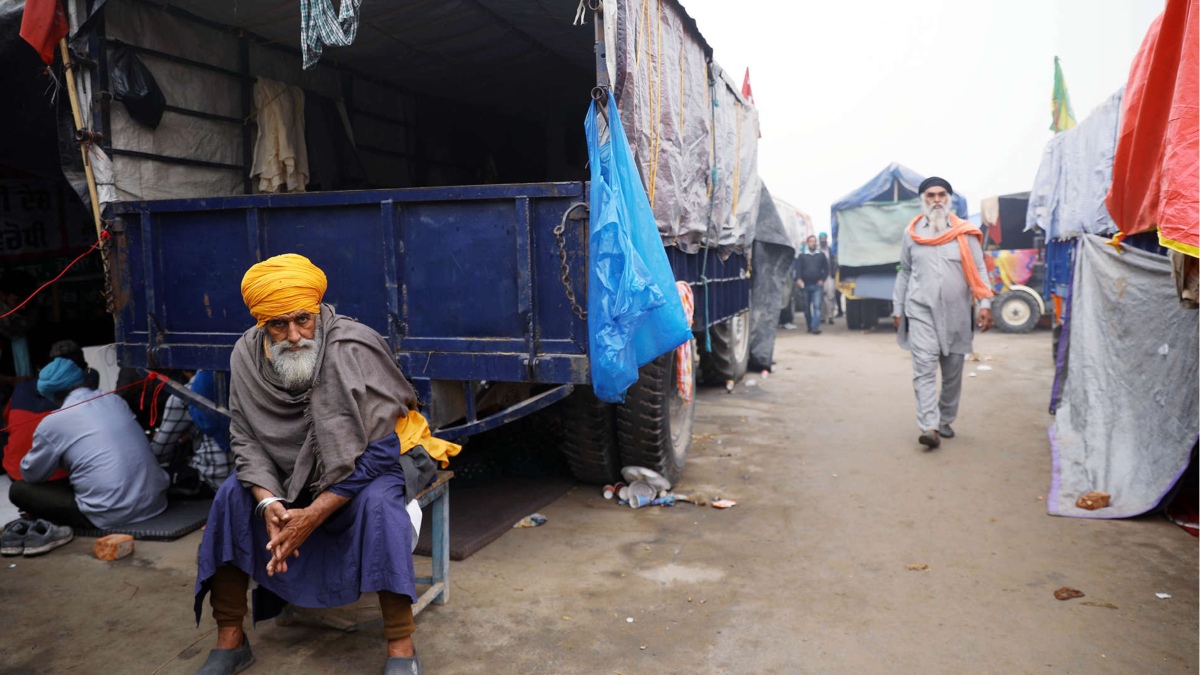India, as a country, has a sizable population which is still engaged in agriculture as a profession. The numbers are slightly above 40 percent of the total population. Thus, it is imperative for any government with a progressive outlook to look at their well being and see how their lives can be made better so they contribute to national good as a hugely potent force.
Traditionally, farmers have been seen as a high value vote bank and made to believe that they cannot aspire for more. This battle of perception was beautifully managed, with them being termed the annadaata, yet confined with shackles and not given the opportunity to grow and excel. These accepted shackles, which had become a way of their lives, need to be broken so that millions of farmers can be liberated. However, this can have political ramifications and a heavy price to pay.
There is an ecosystem in the country wherein some powerful political dynasties and their close associates have made fortunes exploiting primitive trade practices and laws. The economy works on cash flows and every intermediary gets his or her share of the cake as long as you are part of the chain.
It takes a lot of political will and a strong resolve to disturb the apple cart, and the Modi government has done a lot of things which have been on the backburner for decades in our country. This includes the One Rank One Pension scheme, the abrogation of Article 370, constructing the Ram Mandir in Ayodhya, solving the issue of triple talaq, and so on. Their surgical strike on agriculture was for weeding out all intermediaries and let farmers have the full fruits of their labour, which they deserve. Three laws were enacted in the midst of the Covid crisis by the route of an ordinance. The laws are finite and clear and have been made with the purpose to eliminate middlemen and their cabal, and liberate agriculture and farmers in India, who even in tough Covid times delivered the best results.
But all changes have a unique character and it is never easy to accept them. They disrupt some honey pots and beehives. The new laws meant a few straightforward things. As a farmer, you no longer need to go to your local mandi. Local mandis remain in the system but the farmer now has the option of selling to any mandi they like, across the length and breadth of India, which eliminates the local trade heavyweights and their geographical monopolies. You can now sell to corporates or international buyers as well. This definitely gives more options to the farmers and breaks them free from age-old shackles, with a better future ahead full of prosperity. Any market which has opened in any sector of the country, like telecom, retail, space and defense, has benefitted its players and its ecological stakeholders.
But politics is an untameable beast, especially with politicians’ ambitions, which are skyrocketing and always looking for opportunities to go for the kill. Things have gotten more complex with the ISI and the dismantled Khalistani brigade trying to use this opportunity to turn it into an anti-Sikh protest, or at least paint a picture of all farmers across the country standing against these laws, where the biggest point of contention is the MSP, apart from questions about whether mandis will live and land be able to be mortgaged.
The mathematics around the MSP shows that only 6% of produce is bought under the MSP scheme by the government and 93% of the farm produce is sold in open markets. Hence, this is a problem for farmers pan-India and holds no ground. The other two points regarding mandis and land mortgage have been addressed by the government favourably and hence stand settled.
Protests are a viable course of action in any democracy for having your say, but unfortunately, the farmers got into blocking roads and disturbing life and commerce, disrupting economic activity and causing the country to lose millions of rupees per day. Citizens of Delhi—the common man who works hard to make ends meet – are finding it tough to adjust to this and make a living with road jams and blockades. Moreover, there are always enemies of the nation and people with vested interests who see these protests as fertile ground to run their agendas and flare passions. Needless to say, these protest sites can also be the new Covid hotspots and super-spreaders.
Protests and blockades might sound like powerful ideas and strong means to make your demands heard but the law of diminishing returns kicks in and the patience of the establishment and the citizens start hitting the roof. My right to protest cannot infringe on your right to live and lead a normal life. Such protests cross the Rubicon and start to impact the lives of common people and their livelihoods. We all share and cherish the same country, where you have the right to protest and the liberty to put your demands forward. But, at the same time, what happens to my liberty and right to earn and live?
History is a witness to the fact that such bandhs and blockades are no means to reach an end. Coexistence and productive dialogue are the only ways out. The farmers can raise their demands, not by blocking roads, but only through dialogue.







